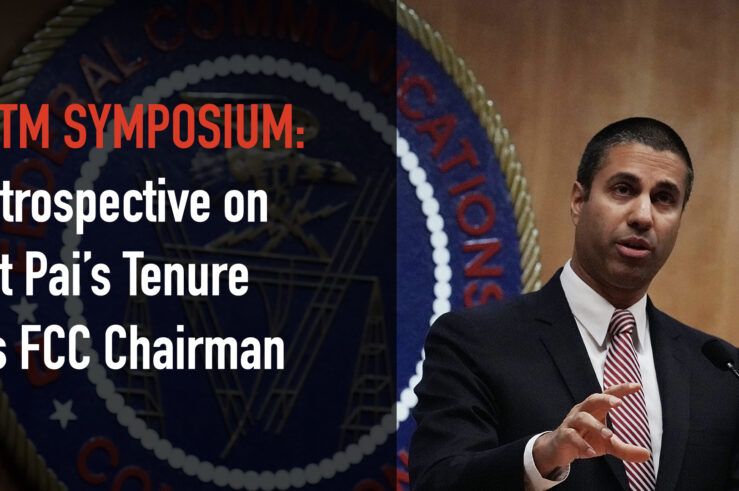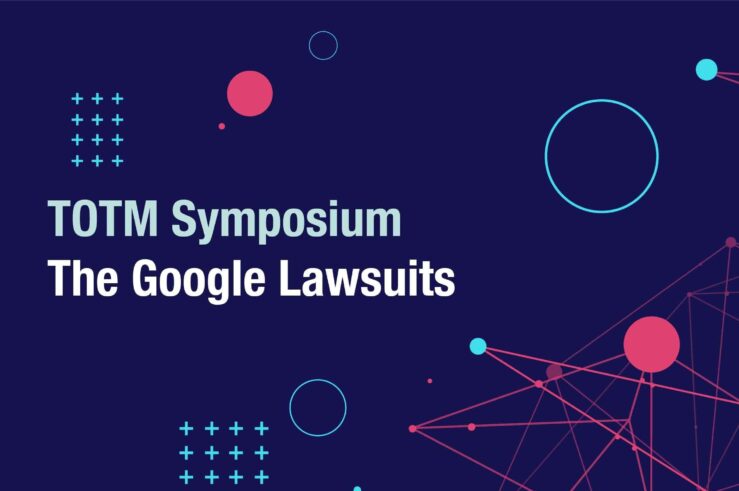Showing results for: “FTC policy statement unfair methods of competition”
The FTC’s New Normal
Over the past two years, the Federal Trade Commission (FTC) has operated differently than it has in recent decades. Characterized by—among other things—an enforcement-heavy approach to antitrust and consumer protection, a vigorous embrace of rulemaking, a skeptical approach to mergers, robust engagement with overseas counterparts, and centralization of decision-making within the Office of the Chair, ... The FTC’s New Normal
Antitrust’s Uncertain Future: Competition in the New Regulatory Landscape
It increasingly appears that the push to pass Sen. Amy Klobuchar’s American Innovation and Choice Online Act (AICOA) will go down to the wire, with a vote potentially taking place sometime before Congress leaves for its August recess. Given the uncertainty surrounding this massive legislative project, this Truth on the Market symposium examines the possible ... Antitrust’s Uncertain Future: Competition in the New Regulatory Landscape
FTC Rulemaking on Unfair Methods of Competition
There is widespread interest in the potential tools that the Biden administration’s Federal Trade Commission (FTC) may use to address a range of competition-related and competition-adjacent concerns. A focal point for this interest is the potential that the FTC may use its broad authority to regulate unfair methods of competition (UMC) under Section 5 of ... FTC Rulemaking on Unfair Methods of Competition
Retrospective on Ajit Pai’s Tenure as FCC Chairman
As we ponder the changes to FCC policy that may arise with the next administration, it’s also a timely opportunity to reflect on the chairman’s leadership at the agency and his influence on telecommunications policy more broadly. Indeed, the FCC has faced numerous challenges and opportunities over the past four years, with implications for a ... Retrospective on Ajit Pai’s Tenure as FCC Chairman
Symposium on the Future of American Antitrust: The Google Lawsuits
The U.S. Justice Department (DOJ) has brought a case alleging that Google’s deals with Android smartphone manufacturers, Apple, and third-party browsers to make Google Search their default general search engine are anticompetitive (ICLE’s tl;dr on the case is here), and the State of Texas has brought a suit against Google’s display advertising business. These follow ... Symposium on the Future of American Antitrust: The Google Lawsuits
Symposium on Big Tech and the Digital Economy: The Moligopoly Scenario
In his book, Petit offers a “moligopoly” framework for understanding competition between large tech companies that may have significant market shares in their ‘home’ markets but nevertheless compete intensely in adjacent ones. Petit argues that tech giants coexist as both monopolies and oligopolies in markets defined by uncertainty and dynamism, and offers policy tools for ... Symposium on Big Tech and the Digital Economy: The Moligopoly Scenario
The Law, Economics, and Policy of the COVID-19 Pandemic
As the COVID-19 pandemic and society’s response to it unfold, we are confronted in real time with some of the limits — and some of the wonders — of modern society. The host of restrictions imposed by governments on movement and social gathering in order to contain the virus, for example, are having significant adverse ... The Law, Economics, and Policy of the COVID-19 Pandemic
The 2020 Draft Joint Vertical Merger Guidelines: What’s in, what’s out — and do we need them anyway?
On January 10, 2020, the DOJ and FTC released their draft 2020 Vertical Merger Guidelines. “Challenging anticompetitive vertical mergers is essential to vigorous enforcement. The agencies’ vertical merger policy has evolved substantially since the issuance of the 1984 Non-Horizontal Merger Guidelines, and our guidelines should reflect the current enforcement approach. Greater transparency about the complex ... The 2020 Draft Joint Vertical Merger Guidelines: What’s in, what’s out — and do we need them anyway?
FTC v. Qualcomm: Analyzing the theory of the case
On May 21, 2019, Judge Lucy Koh of the US District Court for the Northern District of California issued her decision in the case. Both prior to her decision and after it, TOTM bloggers and guests have analyzed the FTC’s theory of the case and offered their thoughts regarding related matters including the sufficiency of ... FTC v. Qualcomm: Analyzing the theory of the case
Amazon-Whole Foods After One Year Symposium
One year ago tomorrow the Amazon/Whole Foods merger closed, following its approval by the FTC. The merger was something of a flashpoint in the growing populist antitrust movement, raising some interesting questions — and a host of objections from a number of scholars, advocates, journalists, antitrust experts, and others who voiced a range of possible problematic outcomes. Under settled antitrust law — evolved over ... Amazon-Whole Foods After One Year Symposium
Agricultural and Biotech Mergers Symposium
On March 27, 2017, the European Commission cleared the merger of Dow and DuPont, subject to conditions including divestiture of DuPont’s “global R&D organisation.” As the Commission noted: The Commission had concerns that the merger as notified would have reduced competition on price and choice in a number of markets for existing pesticides. Furthermore, the ... Agricultural and Biotech Mergers Symposium
Symposium Honoring the Honorable Joshua Wright
Truth on the Market co-founder Josh Wright’s term as a commissioner of the Federal Trade Commission *FTC) ended Aug. 24, 2015. Truth on the Market hosted a symposium — a collection of commentaries and contributions — honoring Josh’s tenure at the FTC. We invited contributions from a range of luminaries, including academics, practitioners, former FTC ... Symposium Honoring the Honorable Joshua Wright










